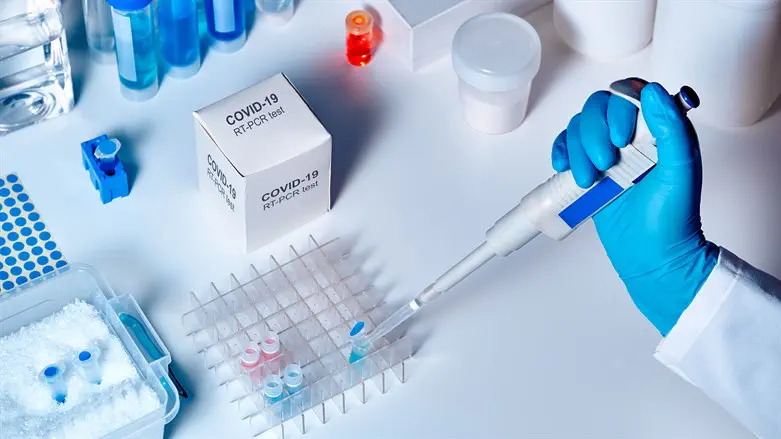
A study recently conducted by researchers from Bar-Ilan University and Ziv Hospital in Tzfat has revealed fascinating findings regarding the significance of antibody levels for protection against infection with COVID-19.
The study, which was published in the Clinical Infectious Diseases journal, followed almost a thousand healthcare workers from Ziv Hospital over an eleven-month period and tested their levels of antibodies against COVID at six different points along the way, from their first dose of COVID vaccine through their first booster shot (the third shot in total).
The study’s authors observed that healthcare workers who contracted COVID before the trial commenced were about half as likely to be reinfected as healthcare workers who received two doses of vaccine were to contract COVID, demonstrating significant natural immunity.
They also noted that these previously infected healthcare workers started out with much higher antibody levels than other trial participants who had only been vaccinated – 13 times greater, in fact – and that these levels dwindled throughout the study to the point where there was no statistical difference (at around seven months into the study).
However, the study also demonstrated a clear lack of correlation between antibody levels and the likelihood of contracting COVID.
Because the trial measured antibody levels so frequently, it was possible to examine two questions:
1) Do antibody levels correlate with protection against infection?
2) Is there an identifiable threshold of antibody levels that is protective?
The study showed convincingly that the answer to both these questions was in the negative, with a high level of significance.
The study’s authors noted that:
“Among those first infected after vaccination, IgG GMC [antibody level] just prior to infection was not different than among those who remained uninfected at the same time point…”
In many cases documented by the study, people with lower antibody titers did not contract COVID whereas those with significantly higher levels did succumb.
The study’s authors also noted that:
“Infected individuals had high circulating IgG levels just prior to infection … and would have been considered strongly positive on any routine serology test. These elements suggest circulating IgG levels are not a robust predictor of protection against infection or disease.”
They concluded that:
“A better understanding of how IgG levels correlate with protection [is] required, especially where ... calls for further doses beyond a single booster are beginning to be made.”

